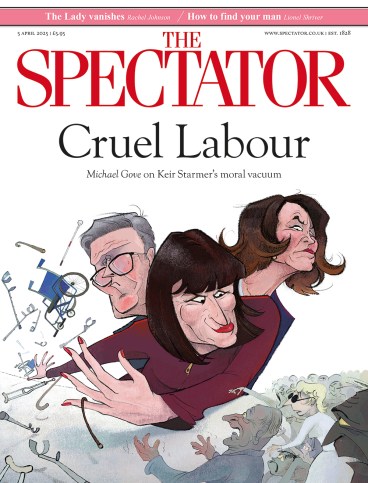
Anthony Cummins has narrated this article for you to listen to.
In 2023 Natasha Brown published an article taking the reader behind the scenes of two interviews that she had given to newspapers in Australia and Spain while promoting her debut novel, Assembly. The point was to expose sleight of hand in the resulting write-ups, to say nothing of shabby conduct more generally. One interviewer, eager for her ‘to admit that I was influenced by two television shows which aired after my novel went to print’, asked, a propos of nothing, if she had a boyfriend. ‘It’s not clear whether this question came from the creased printout he regularly consults,’ wrote Brown, acidly.
Skewering journalistic pretension to authority is the main business of Universality, which centres on a fictitious magazine feature, printed at the start and shown in later chapters to be a tissue of deceit. (‘What he’d believed was a shared understanding… had proved to be a cruel confidence trick,’ thinks one interviewee.) The piece – a viral success optioned for TV – concerns an activist who is brained by a gold bar at a lockdown–breaking rave that implicates a banker as well as a shit-stirring columnist, Miriam Leonard, known as Lenny, the author of a book called No Mo’ Woke, ‘still a popular hashtag’.
Intrigue about Brown’s purpose keeps us rapt. Although the grip on detail is shaky – it’s both viciously accurate and weirdly off the mark – the novel impressively sustains tension, even menace, in an ultra-targeted send-up with more than a suggestion of scores being settled. Nothing escapes satire: when the struggling reporter behind the article reflects miserably on the short-lived boost the piece gave her career, she resigns herself to yet again ‘scrapping around for the same old freelance work: 500-word summaries of the latest multicultural dreck passing for contemporary women’s fiction’.
Universality culminates in a riveting set piece at a book festival, where a young woman tells Lenny she wouldn’t mind getting into journalism herself. Lenny muses:
Did she fancy exploiting herself for pennies per word, grinding out culture war fodder and outrage bait with zero scope for flair or individuality? Cheap, commodity labour, temporarily serving the algorithm that would one day replace her entirely.
Shadowing the novel’s unforgiving anatomy of everything awry with the trade is a sense that we might yet miss it once it’s gone.







Comments